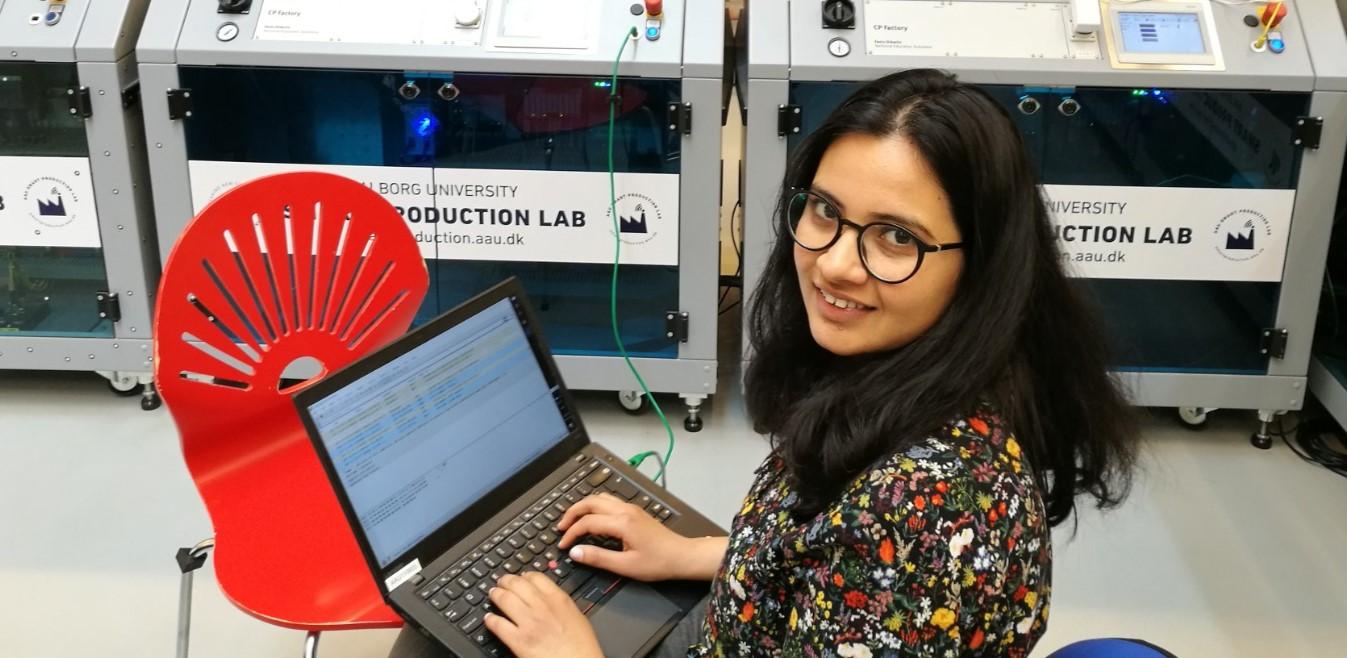
Submitted by A.B. Youngman on Fri, 21/07/2023 - 14:33
Dr Soujanya Mantravadi is a research associate at the Institute for Manufacturing at the University of Cambridge, currently working on food supply chains and digital interventions for the Mandala project.
She has a PhD in Industrial engineering and Information systems. The Manufacturing Academy of Denmark financed her PhD, where she worked closely with companies such as LEGO and Arla to apply her research on Industry 4.0 to improve supply chain operations. Before her PhD, she spent five years working in industry and consulting.
Soujanya told us about her research career, her belief that diligence and empathy can outshine intellectual brilliance and her favourite place in Cambridge.
My research focuses on the intersection of industrial information systems and their application domains. As a mechanical engineer, problem solving has been ingrained in my training and industry experience, which has been about developing solutions to practical industrial challenges. My research career is an extension of this, and I want to explore the quirky collaboration of information technology with the physical world of factories and supply chains, in times where our world is increasingly intertwined with digital technologies. My doctoral studies gave a formal foundation for researching this phenomenon. In the future, I’d like to apply this knowledge to new application domains like food systems and public health. This thinking makes me adopt a bird’s-eye systems view in my research.
Since childhood, I’ve been surrounded by free-thinking folk who entertained and expressed diverse viewpoints. This naturally nurtured my interest in discussion and debate, and I find myself well-suited for roles dealing with knowledge sharing and teaching.
In 2017, I made a big decision to leave my full-time industry job to pursue a PhD. I am a driven person, and my career took me to many places: France, Switzerland, and Denmark since my master’s days in Sweden (2013). This certainly enriched my life but came with a challenge of staying far from friends and family. But I refuse to see distance as a barrier and take extra efforts to meet and stay connected with them and am able to find a balance.
My most recent paper was published in the journal Computers in Industry. I collected data from 6 large manufacturing companies (including the food industry) in Denmark on their Industry 4.0 journeys as part of my 4-year research project on smart factories. The findings were on supply chain integration, particularly on the complexities of integrating legacy equipment and small businesses.
I’ve had useful advice and good suggestions from many different people. In the context of work, the best piece of advice came from one of my mentors and a book writer. During college, I was volunteering for a small local environmental think tank in my hometown, Hyderabad, India, alongside him, and he once said, “Deadlines are more important than perfection”. This idea stayed with me and shaped my work ethic. I believe diligence and empathy can outshine intellectual brilliance.
Quality Function Deployment (QFD) is my go-to research tool in systems engineering. Originating in Japan in the late 1960s, it swiftly translates qualitative customer input into detailed quantitative engineering considerations. I extensively use QFD in my research and in my current project, I plan to use it to apply technological solutions to meet the food industry's demands for healthy and sustainable food supply chains.
Sustainability is always on my mind, and I plan my meals to reduce food waste and minimize excessive packaging. I am a vegetarian and try to cook everything from scratch to have control over the ingredients. I stay informed on topics such as permaculture, local and seasonal produce, and sustainable food sources like millets, to include them in my diet whenever possible.
I’m interested in Indian ayurvedic cooking and the art of using spices. Adding spices is not necessarily about making the food spicy hot but to add nutrition and taste to the dish. Growing up, I enjoyed simple yet cleverly prepared meals that brought out the best in vegetables. To give a South Indian touch to any vegetable dish, start by frying mustard seeds and cumin in oil, then add your choice of cut vegetables. Sauté them for 5-10 minutes and season with salt and red chili powder according to your preference. Finally, garnish with fresh coriander, and voila!
I’m fond of small rivers and so glad that Cambridge has a lovely river and so much greenery. The path next to River Cam, near Midsummer Common is one of my favourite places to sit and relax or read a book. Next time you see me there, please say hello.
Soujanya gave a talk on her research for one of our GFS coffee break seminars. Please find the recording here.
Picture credit: Dr Soujanya Mantravadi

